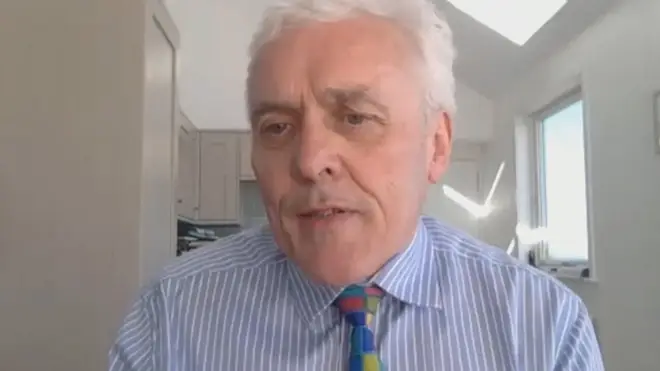
Ian Payne 4am - 7am
17 April 2020, 12:23

Leading doctor - The UK will likely have highest death rate in Europe
A leading expert on public health today warned the UK is facing "further waves" of coronavirus and will probably have the highest death rate in Europe, or possibly the world, because the Government was "too slow" to act.
Professor Anthony Costello, of University College London'sInstitute for Global Health, told a committee of MPs that 'this wave could see 40,000 deaths by the time it's over."
He added that the "harsh reality" is that the government was "too slow with a number of things".
His warning comes after he delivered a separate video message in which he said the UK is facing up to 40,000 deaths from Covid-19.

"We are heading up to over 40,000 deaths, that could easily put us in first place of the world. This is the worst public catastrophe of the last century. We have to ask questions about why," he said in a clip posted online earlier this week.
READ MORE: The latest coronavirus updates live
Professor Costello told the Health and Social Care Committee today: "If we're going to suppress the chain of transmission of this virus in the next stage we all hope that the national lockdown and social distancing will bring about a large suppression of the epidemic so far - but we're going to face further waves."
"And so we need to make sure that we have a system in place that cannot just do a certain number of tests in the laboratory, but has a system at district and community level."
Prof Costello said we "should not have any blame at this stage" but that "we can make sure in the second wave we're not too slow".
Health Secretary Matt Hancock announced that testing will be expanded to those in the police, fire service and prisons, as well as critical local authority workers, the judiciary and Department for Work and Pensions staff where required.
It follows criticism of a gulf between those being tested and the testing capacity, with just 16,000 tests being conducted in the 24 hours up to 9am on Wednesday, despite 35,000 tests being available.
Mr Hancock confirmed to the committee that more than 50,000 NHS workers have now been tested for coronavirus.
MPs were also told that healthcare staff are "genuinely concerned" about the safety of patients being compromised if workers are spread too thinly.
Dr Alison Pittard, Dean at the Faculty of Intensive Care Medicine, said: "We've had to spread ourselves more thinly and we have developed guidance to try and make sure that continues to be safe, but if we have to expand even more and spread ourselves even more thinly, there would be concern that safety could be compromised.
"So everyone is working really well, we're doing everything that we can but staff are genuinely concerned."
And Dame Donna Kinnair, chief executive of the Royal College of Nursing, told the committee sick NHS workers are being forced to drive two hours away to be tested.
She urged: "We need some really clear direction on how we can access testing both in the NHS but more so for social care, because they don't have the same infrastructure as the NHS."
In other developments today:
London's buses were switched to middle-door boarding only to protect bus drivers
Police issued new guidance on what the 'reasonable excuses' are for going out
Prof Costello, a former British director at the World Health Organisation, said he was "not sure we need 100,000 tests per day in reality if we can get this epidemic damped down" and that it was "more important to have the systems in place".
Listen & subscribe: Global Player | Apple Podcasts | Google Podcasts | Spotify
"How are they restructuring the public health teams? Have they got plans in place? Will they need extra volunteers, for example?"
He also suggested offering incentives to 10% of the population to stay socially isolated in order to get the economy going again.
"We have to get the economy going and if it means locking down 10% of our population, even giving them incentives to stay in quarantine and with digital apps to help monitor their symptoms and give them support, that's the way to really keep this going until we get a vaccine and safe herd immunity."